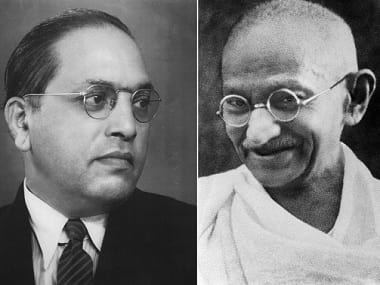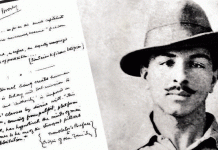It was on the 12th of December 1935,that social reformer and activist BR Ambedkar had been asked by the Jat-Pat Todak Mondal (Society for the Abolition of Caste System), a Hindu reformist group to deliver an address at the annual conference and share his views on the negative implications and the ill-effects of the caste system within the Hindu social order. When he sent across his speech to the organisers, entitled the Annihilation of Caste- the organising committee wasn’t very happy with the contents of the speech. In fact they disapproved of it as they alleged that the contents of his speech were against Hinduism and its shashtras. However, when he was requested to delete the paragraphs which the committee had found offensive, he said that he ‘would not change a comma’. The committee withdrew its invitation after Ambedkar refused to make any changes, he later published the speech in the form of an essay entitled ‘Annihilation of Caste’. This essay is widely read and seen as B.R. Ambedkar’s most iconic and radical texts.
Here is an excerpt from ‘Annihilation of Caste’
There is no doubt, in my opinion, that unless you change your social order you can achieve little by way of progress. You cannot mobilize the community either for defence or for offence. You cannot build anything on the foundations of caste. You cannot build up a nation, you cannot build up a morality. Anything that you will build on the foundations of caste will crack, and will never be a whole.
The only question that remains to be considered is—How to bring about the reform of the Hindu social order? How to abolish Caste? This is a question of supreme importance. There is a view that in the reform of Caste, the first step to take is to abolish sub-castes. This view is based upon the supposition that there is a greater similarity in manners and status between sub-castes than there is between castes. I think this is an erroneous supposition. The Brahmins of Northern and Central India are socially of lower grade, as compared with the Brahmins of the Deccan and Southern India. The former are only cooks and water-carriers, while the latter occupy a high social position. On the other hand, in Northern India, the Vaishyas and Kayasthas are intellectually and socially on a par with the Brahmins of the Deccan and Southern India.
Again, in the matter of food there is no similarity between the Brahmins of the Deccan and Southern India, who are vegetarians, and the Brahmins of Kashmir and Bengal, who are non-vegetarians. On the other hand, the Brahmins of the Deccan and Southern India have more in common so far as food is concerned with such non-Brahmins as the Gujaratis, Marwaris, Banias, and Jains.
Another plan of action for the abolition of Caste is to begin with inter-caste dinners. This also, in my opinion, is an inadequate remedy. There are many castes which allow inter-dining. But it is a common experience that inter-dining has not succeeded in killing the spirit of Caste and the consciousness of Caste. I am convinced that the real remedy is inter-marriage. Fusion of blood can alone create the feeling of being kith and kin, and unless this feeling of kinship, of being kindred, becomes paramount, the separatist feeling—the feeling of being aliens—created by Caste will not vanish. Among the Hindus, inter-marriage must necessarily be a factor of greater force in social life than it need be in the life of the non-Hindus. Where society is already well-knit by other ties, marriage is an ordinary incident of life. But where society is cut asunder, marriage as a binding force becomes a matter of urgent necessity. The real remedy for breaking Caste is inter-marriage. Nothing else will serve as the solvent of Caste.
Your Jat-Pat-Todak Mandal has adopted this line of attack. It is a direct and frontal attack, and I congratulate you upon a correct diagnosis, and more upon your having shown the courage to tell the Hindus what is really wrong with them. Political tyranny is nothing compared to social tyranny, and a reformer who defies society is a much more courageous man than a politician who defies the government. You are right in holding that Caste will cease to be an operative force only when inter-dining and inter-marriage have become matters of common course. You have located the source of the disease.
But is your prescription the right prescription for the disease? Ask yourselves this question: why is it that a large majority of Hindus do not inter-dine and do not inter-marry? Why is it that your cause is not popular?












